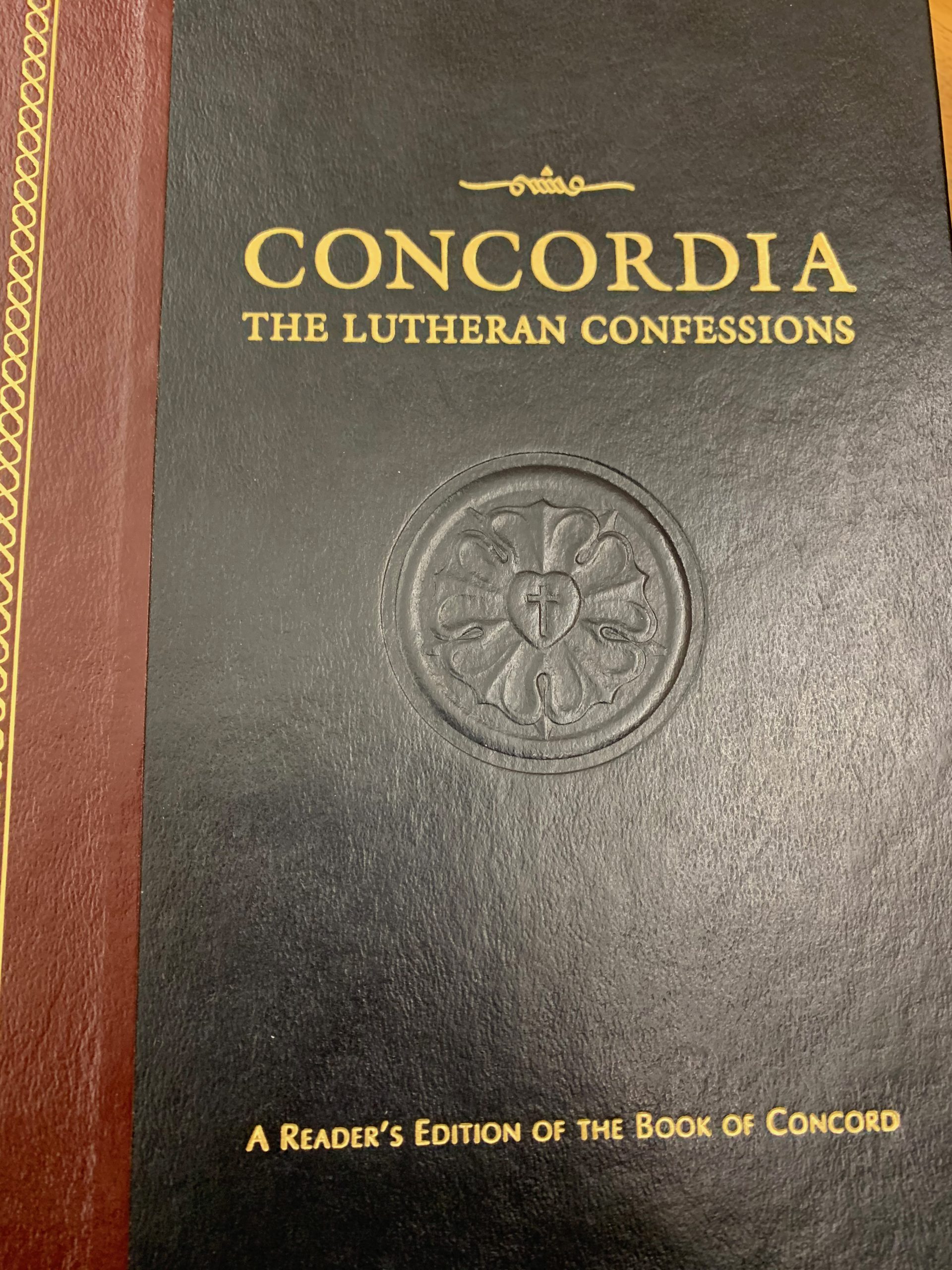Note: This is the fourth series of posts providing commentary on the Book of Concord adapted from my Lutheran Essentials Class Notes. I pray they are edifying and aid in the reading of the Book of Concord. Scriptural citations are inspired by the Reader’s Edition to the Book of Concord. The quotes from the Book of Concord are from the Book of Concord website. You can find the first series on the Large Catechism here, the second series on the Augsburg Confession here, and the third series on the Smalcald Articles here.
A Treatise on the Power and Primacy of the Pope
Treatise Compiled by the Theologians Assembled at Smalcald – 1537
1] The Roman Pontiff claims for himself [in the first place] that by divine right he is [supreme] above all bishops and pastors [in all Christendom].
2] Secondly, he adds also that by divine right he has both swords, i.e., the authority also of bestowing kingdoms [enthroning and deposing kings, regulating secular dominions etc.].
3] And thirdly, he says that to believe this is necessary for salvation. And for these reasons the Roman bishop calls himself [and boasts that he is] the vicar of Christ on earth.
4] These three articles we hold to be false, godless, tyrannical, and [quite] pernicious to the Church.
5] Now, in order that our proof [reason and opinion] may be [better] understood, we shall first define what they call being above all [what it means that he boasts of being supreme] by divine right. For they mean that he is universal [that the Pope is the general bishop over the entire Christian Church], or, as they say, ecumenical bishop, i.e., from whom all bishops and pastors throughout the entire world ought to seek ordination and [confirmation, who [alone] is to have the right of electing, ordaining, confirming, deposing all bishops [and pastors]. 6] Besides this, he arrogates to himself the authority to make [all kinds of] laws concerning acts of worship, concerning changing the Sacraments [and] concerning doctrine, and wishes his articles, his decrees, his laws [his statutes and ordinances] to be considered equal to the divine laws [to other articles of the Christian Creed and the Holy Scriptures], i.e., he holds that by the papal laws the consciences of men are so bound that those who neglect them, even without public offense, sin mortally [that they cannot be omitted without sin. For he wishes to found this power upon divine right and the Holy Scriptures; yea, he wishes to have it preferred to the Holy Scriptures and God’s commands]. And what he adds is still more horrible, namely, that it is necessary to believe all these things in order to be saved [all these things shall and must be believed at the peril of forfeiting salvation].
This treatise was written by Philip Melancthon and were adopted in 1537 by the Smalcaldic League to be presented at the General Church Council that was supposed to occur in Mantua. Originally it was intended that Martin Luther’s Smalcald Articles would be sent to the Council but the princes at the Smalcaldic League meeting decided against it. Luther’s articles were considered too inflammatory and instead they commissioned Melancthon to write an addendum to the Augsburg Confession dealing specifically with the papacy. It was this treatise, along with the Augsburg Confession that they were going to forward to the eventual Council. To say that the Treatise is less inflammatory than Luther’s articles though is not correct as even Melancthon wrote later that he wrote more strongly in the Treatise than he normally would. While Luther’s lambasting of the papacy in Smalcald Articles is incendiary; Melancthon’s Treatise is a point by point decimation of the legitimacy of the papacy, which in its measured tone (compared to Luther) is even more dangerous to the Pope.
As the title suggests this treatise deals with the following claims by the Pope:
- First the Pope claims he is superior to all clergy by divine right
- Second, he claims that he has temporal and spiritual authority by divine right (both swords)
- Third that it is necessary for salvation to believe this.
For these reasons the Pope calls himself the Vicar of Christ (namely his official spokesman and intercessor). These are the power and primacy that he claims by divine right.
We firmly reject all of these claims.
Since the language of divine right is not common today we should define the term. A claim to divine right means that the claimant, in this case the Pope, is ordained specifically by God to do these things. He, that is the Pope, has the right to elect or remove any clergy for any reason. He can make laws about worship, change Sacraments, and change doctrine. That his edicts are equal to God’s Word. That if you disobey the pope or do not believe these things you are condemned to hell. For to disobey him is to disobey God Himself. This is what is meant by divine right.
In the rest of this Treatise Melancthon will debunk all of these claims and show what the pope truly is, an agent of Satan.

As true today as the day it was written. Scripturally sound.
Doesn’t this also apply to the relationship between the pastor and the congregation? I’m speaking, specifically, to the point that pastors are limited in their power to preach the Gospel, administer the sacraments, and to forgive and retain sins. I believe that our LCMS congregations were designed that way to protect the pastors from criticisms regarding things that have nothing to do with the ministry.